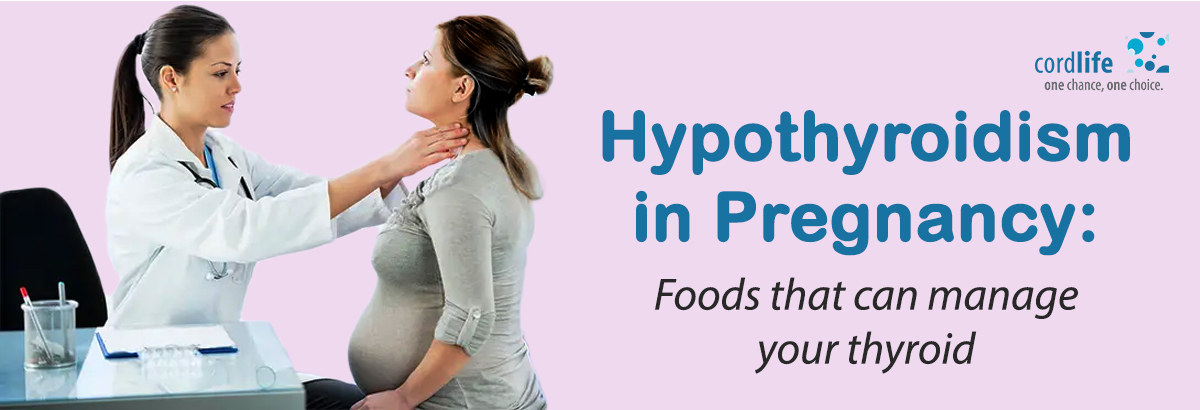Table of Contents
To confirm pregnancy, healthcare practitioners often check thyroid levels. The thyroid gland is located near the neck and Adam’s apple (larynx). It contains two lobes, one on each side of the windpipe. The thyroid gland produces hormones that regulate the metabolic process, growth, and energy of the body. The indication of normal functioning of the thyroid is when TSH and Free T4 remain normal throughout all stages of pregnancy.
During pregnancy, thyroid hormones increase naturally due to oestrogen and human chorionic gonadotropin (hCG). While slightly enlarged thyroid glands may not be noticeable during physical exams during pregnancy, a significantly enlarged goitre will prompt the doctor to take you through thyroid tests.
Types of Thyroids (H2)
- Overactive thyroid (hyperthyroidism): When excessive T4 and T3 flow into the bloodstream, accelerating metabolism.
- Underactive thyroid (Hypothyroidism): An underactive thyroid (hypothyroidism) produces too little T4 and T3, reducing metabolism.
Untreated hypothyroidism can give rise to cognitive impairment in children during pregnancy. Not just that! Tiredness, coldness, constipation, and depression are all common symptoms of hypothyroidism.
How to Treat Hypothyroidism During Pregnancy?
To keep hypothyroidism under control, you need medical intervention and lifestyle modification.
Medical Intervention
A healthcare practitioner will evaluate your family or personal medical history, any autoimmune disorder, obesity, or previous miscarriage/preterm delivery to prescribe appropriate medicines.
Lifestyle Changes
Incorporating physical activity and a hypothyroid-friendly diet can help manage hypothyroidism effectively.
Important Nutrition to Manage Hypothyroidism in Pregnancy
Intake of Iodine
Iodine deficiency can contribute to the development of hypothyroidism during pregnancy. According to WHO, a daily intake of 250 µg is good for your thyroid. Including iodised salt, while preparing your food, intake of iodine-rich food bread, eggs, cheese, etc. and consumption of iodine supplements are helpful for hypothyroidism diets.
Add Selenium-rich Food
Selenium deficiency has been linked to autoimmune thyroid disease, such as Hashimoto’s thyroiditis. You can include selenium-rich food like eggs, chicken, fish, legumes, bananas, etc into your diet.
Add Zinc
A zinc deficiency worsens hypothyroidism, therefore as per the study of 2021, consuming food with zinc in it can help. For instance, fish, meat, chickpeas, lentils and beans are all good sources of zinc.
Add Vitamin A
Vitamin A and its metabolites- retinoic acid (RA) may help regulate thyroid hormones. Also, including in addition to cell proliferation and differentiation, vitamin A is also essential for immune function, reproduction, embryonic development, and metabolism.
Add Folic Acid
During pregnancy, you’d need 600 micrograms per day. The importance of folic acid for thyroid health cannot be overlooked. Maintaining thyroid function requires the production of DNA and cell growth and repair.
Additionally, include fruits (like bananas, apples, grapes, etc), non-starchy vegetables (like carrots, peppers, spinach, or mushrooms), and Healthy fats (like olive oil, avocados, avocado oil, coconut oil), etc., into your pregnancy diet to support thyroid health.
While there is no single “best” diet for hypothyroidism during pregnancy, prioritising overall health and well-being can help manage the condition effectively.
